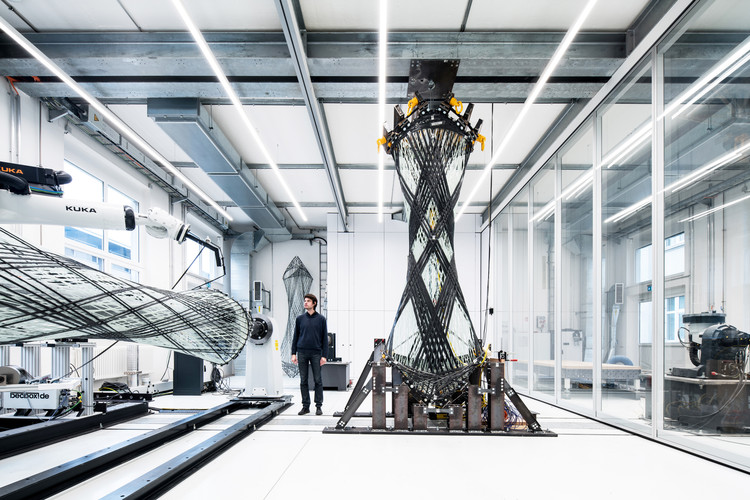Welcome to the exciting world of remodeled AI, where innovation meets artificial intelligence to revolutionize the way we live, work, and play. In this article, we’ll explore the transformative power of remodeled AI and how it’s reshaping various industries.
What is AI (Artificial Intelligence) in Remodeling?
Artificial Intelligence (AI) in remodeling refers to the integration of intelligent algorithms and machine learning models into the remodeling process. It leverages data analysis, predictive analytics, and automation to enhance decision-making, streamline workflows, and optimize resources in remodeling projects. By harnessing the power of AI, remodeling professionals can achieve greater efficiency, accuracy, and cost-effectiveness.
AI-powered tools and technologies are being used across different stages of the remodeling process, from initial design and planning to project execution and post-construction maintenance. Let’s explore some of the key benefits of using AI in remodeling projects.
Benefits of Using AI in Remodeling Projects

- Enhanced Design and Planning: AI algorithms can analyze vast amounts of data related to building structures, materials, and design aesthetics to generate optimized remodeling plans. By considering various factors such as energy efficiency, spatial optimization, and user preferences, AI-powered design tools can create more functional and visually appealing spaces.
- Accurate Cost Estimation: Remodeling projects often involve complex cost calculations, taking into account labor, materials, permits, and other variables. AI algorithms can analyze historical project data, market trends, and supplier information to accurately estimate the costs involved. This helps remodeling professionals provide clients with more accurate and transparent cost projections.
- Improved Project Management: AI-powered project management tools enable efficient scheduling, resource allocation, and task tracking. By considering factors such as skill sets, availability, and project dependencies, these tools optimize project timelines, minimize delays, and improve overall productivity. Remodeling professionals can track progress in real-time, identify bottlenecks, and make data-driven decisions to ensure successful project completion.
Now that we have explored the benefits of using AI in remodeling projects, let’s take a closer look at the AI-powered tools and technologies that are transforming the remodeling industry.
AI-powered Tools and Technologies for Remodeling
- Virtual Reality (VR) and Augmented Reality (AR): VR and AR technologies enable clients to visualize remodeling designs in a realistic and immersive manner. By wearing VR headsets or using AR apps on their smartphones, clients can experience their future spaces before any construction begins. This not only helps them make informed design choices but also reduces the chances of costly design changes during the construction phase.
- Machine Learning-based Material Recommendations: AI algorithms can analyze various factors such as client preferences, budget constraints, and project requirements to recommend suitable materials for remodeling projects. By considering factors like durability, sustainability, and cost-effectiveness, these algorithms can suggest the most appropriate materials for each specific project, saving time and effort in the material selection process.
- Smart Home Automation: With the increasing popularity of smart home devices, AI-powered automation systems are being integrated into remodeling projects. These systems use sensors, machine learning algorithms, and voice recognition technology to control various aspects of a home, such as lighting, temperature, security, and entertainment. Remodeling professionals can incorporate these smart technologies into their projects, offering clients a more comfortable and technologically advanced living experience.
Now that we understand the tools and technologies driving the remodeling industry, let’s explore how AI can enhance the remodeling process itself.
How AI Can Enhance the Remodeling Process
- Efficient Space Utilization: AI algorithms can analyze floor plans, building layouts, and user requirements to optimize the utilization of available space. By suggesting alternative room arrangements, storage solutions, and spatial configurations, AI can help remodeling professionals maximize the functionality and usability of the spaces they work on.
- Real-time Performance Monitoring: AI-powered sensors can be installed in remodeling projects to monitor various parameters such as energy consumption, indoor air quality, and water usage. By collecting and analyzing this data in real-time, remodeling professionals can identify inefficiencies, detect maintenance issues, and make data-driven decisions to improve the performance of the remodeled spaces.
- Predictive Maintenance: AI algorithms can analyze historical maintenance data, equipment performance, and environmental conditions to predict when maintenance tasks will be required. By proactively scheduling maintenance activities, remodeling professionals can reduce downtime, increase equipment lifespan, and minimize the chances of unexpected failures, thereby saving costs and ensuring client satisfaction.
Now that we have explored the ways in which AI enhances the remodeling process, let’s dive into some case studies to see how successful remodeling projects have utilized AI.
Case Studies: Successful Remodeling Projects Using AI

- Healthcare Facility Renovation: A large healthcare facility used AI-powered design tools to remodel their patient rooms. By considering factors such as patient comfort, infection control, and accessibility, the AI algorithms generated optimized room designs. The remodeled patient rooms not only improved patient experience but also reduced the risk of healthcare-associated infections, demonstrating the power of AI in healthcare remodeling.
- Commercial Office Space Transformation: An office space remodeling project utilized AI-powered project management tools to optimize resource allocation and task scheduling. The AI algorithms analyzed employee work patterns, department dependencies, and project timelines to create an efficient remodeling plan. The result was a streamlined remodeling process that minimized disruptions to office operations and improved employee productivity.
- Residential Renovation with Smart Home Integration: A residential remodeling project incorporated AI-powered smart home automation systems to enhance the living experience. The remodeling professionals integrated voice-controlled lighting, temperature control, and security systems into the renovated spaces. This not only added convenience and comfort but also increased the property value, showcasing the potential of AI in residential remodeling.
Now that we have seen how AI has been successfully implemented in remodeling projects, let’s explore how you can implement AI in your own remodeling business.
Implementing AI in Your Remodeling Business
- Identify Pain Points: Assess your current remodeling processes and identify areas where AI could potentially bring value. Whether it’s design optimization, cost estimation, or project management, pinpoint the pain points that AI can address and prioritize them according to their impact on your business.
- Research AI Solutions: Explore the market for AI-powered tools and technologies that align with your remodeling business needs. Consider factors such as cost, scalability, ease of integration, and customer reviews when selecting AI solutions. Engage with vendors, attend industry conferences, and seek recommendations from peers to make informed decisions.
- Training and Adoption: Once you have implemented AI solutions, ensure that your team is trained to effectively utilize them. Provide training sessions, workshops, and resources to educate your employees about the benefits and functionalities of AI in remodeling. Encourage adoption and facilitate a smooth transition by addressing any concerns or resistance.
- Continuous Improvement: Monitor the performance of AI solutions in your remodeling projects and gather feedback from your team and clients. Identify areas for improvement, collaborate with AI solution providers, and stay up to date with industry trends to ensure that you are maximizing the benefits of AI in your remodeling business.
Now that we have discussed how to implement AI in remodeling, let’s explore the role of human expertise in contrast to AI.
AI vs Human Expertise in Remodeling
While AI brings numerous benefits to the remodeling industry, human expertise remains essential. AI algorithms are only as good as the data they are trained on and the instructions they receive. Human professionals possess creativity, intuition, and industry experience that cannot be replicated by AI algorithms alone.
Remodeling projects often involve complex decision-making, client interactions, and unforeseen challenges that require human judgment and problem-solving skills. By combining the power of AI with human expertise, remodeling professionals can achieve the best of both worlds – the efficiency and accuracy of AI, and the creativity and adaptability of humans.
Now that we have highlighted the importance of human expertise, let’s address the challenges that may arise when using AI in remodeling.
Overcoming Challenges When Using AI in Remodeling

- Data Quality and Availability: AI algorithms require high-quality and diverse data to deliver accurate results. In the remodeling industry, accessing reliable and comprehensive data can be a challenge. Remodeling professionals need to invest in data collection and management systems to ensure that AI algorithms have access to the right data for effective decision-making.
- Integration and Compatibility: Integrating AI-powered tools and technologies into existing remodeling processes and software systems can be complex. Compatibility issues, data transfer challenges, and the need for additional training can pose hurdles. It is crucial to choose AI solutions that seamlessly integrate with your current workflow and ensure proper technical support during the implementation phase.
- Ethical and Privacy Concerns: AI algorithms rely on vast amounts of data, including personal and sensitive information. Remodeling professionals need to address ethical and privacy concerns associated with data collection, storage, and usage. Implementing robust data protection measures, obtaining client consent, and adhering to industry regulations are vital to maintain trust and comply with legal requirements.
Now that we have discussed the challenges, let’s explore the future trends in AI for the remodeling industry.
Future Trends in AI for Remodeling
- Generative Design: AI algorithms will continue to evolve, enabling generative design capabilities. These algorithms will not only optimize existing designs but also generate entirely new design possibilities based on specified criteria. Remodeling professionals will be able to explore a vast array of design options, pushing the boundaries of creativity and innovation.
- Predictive Analytics and Machine Learning: AI will increasingly leverage predictive analytics and machine learning to provide remodeling professionals with valuable insights. By analyzing historical data, market trends, and user preferences, AI algorithms will assist in making data-driven decisions, forecasting project outcomes, and identifying potential risks or opportunities.
- Collaborative Robotics: The integration of AI with robotics will enable collaborative robots, or cobots, to work alongside humans in remodeling projects. Cobots will assist with physically demanding tasks, automate repetitive processes, and enhance overall productivity. Remodeling professionals will benefit from increased efficiency, reduced physical strain, and improved safety.
Conclusion
In conclusion, the remodeling industry is being transformed by the power of AI. From enhanced design and planning to efficient project management, AI-powered tools and technologies are reshaping the way remodeling projects are executed. By leveraging AI, remodeling professionals can unlock new levels of efficiency, accuracy, and creativity, propelling the industry into a smarter and more connected future.
The future of AI in the remodeling industry holds immense potential for innovation and growth. As AI technologies continue to evolve, remodeling professionals must stay informed, adapt, and embrace these advancements to remain competitive in an ever-changing landscape. By harnessing the power of remodeled AI, the remodeling industry is poised to create spaces that are not only aesthetically pleasing but also functional, sustainable, and technologically advanced.
Join us on this enlightening journey as we witness the power of AI reinvented for a smarter and more connected future in the remodeling industry. Embrace the transformative potential of remodeled AI and unlock new possibilities in your remodeling projects. The future is here, and it’s time to embrace the limitless potential of AI in remodeling.

